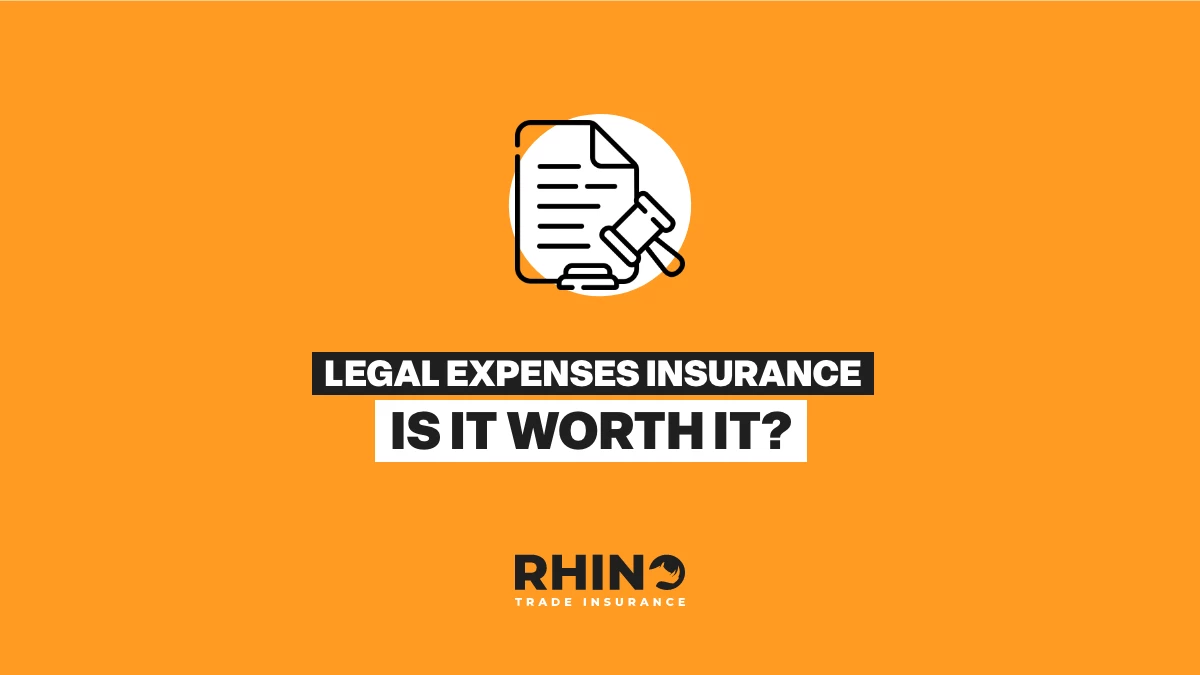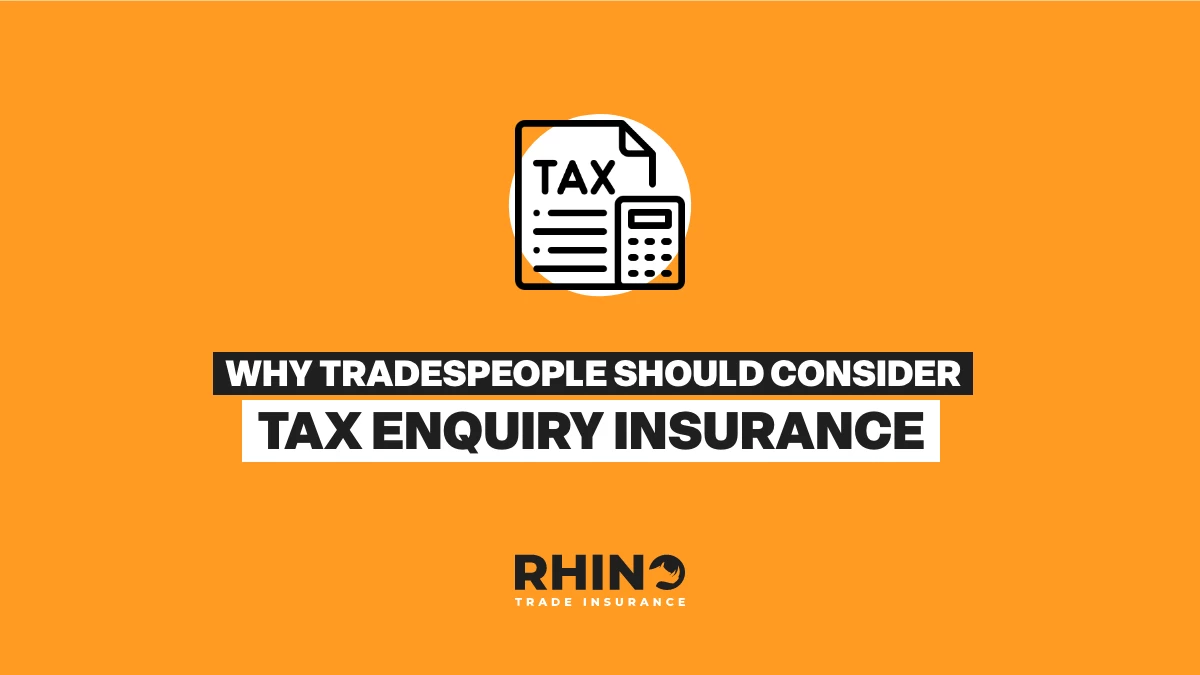
Legal Expenses Insurance – Is it Worth It?
Legal Expenses Insurance for tradespeople explained—what it covers, when you might need it, and how it protects against costly legal fees.
Let’s get one thing straight. If you’re an employer in the UK, you need Employer’s Liability Insurance.
If you’re going to pay for this insurance year after year, it helps to know what it is and why it’s a good thing for you as well as your employees.
Pour yourself your hot drink of choice and stay with us as we give you a basic business guide to Employer’s Liability Insurance.
Employer’s Liability Insurance was introduced in 1969 in the UK to bring enhanced protection for employers against liability for injuries or illnesses sustained by their employees in the course of their work.
This insurance covers the cost of claims from employees who have become injured or developed a disease as a result of working for an employer. Having this insurance in place means that your employees have reassurance that if they’re harmed while carrying out duties for you, then they’ll not be left out of pocket. And it offers you the peace of mind that comes with knowing you won’t be, either.
If you’re an employer in the UK, it’s a legal requirement that you have Employer’s Liability Insurance. You should have it in place from day one of being an employer. This is not an area where you can duck and dive – you may be fined up to £2,500 for each day that you’re without cover.
You may also be fined £1,000 if you do not display your Employer’s Liability Insurance certificate, or refuse to make it available to HSE inspectors when they ask to see it.
You should have a minimum of £5 million in Employer’s Liability Insurance cover, and you must purchase it from an authorised insurer (like Rhino).
For one thing, it’s the law, and no employer wants to be hit with a huge fine for non-compliance.
But aside from this, protecting finances is a one of the key aspects of Employers' Liability coverage in that it is in your best financial interests as a businessowner, as well as the financial interests of your employees. You don’t want to shell out for damages, compensation and legal fees every time an employee is hurt on-site, and Employer’s Liability Insurance means you’ll never need to.
Job sites are dangerous places. Whether your employees are climbing a ladder, getting wrist-deep in electrical wiring, perching on roofs, sitting behind the wheel of a mini digger or wielding a circular saw, it’s pretty obvious that trade work comes with more than its fair share of risk.
Like it or not, your employees have a much higher chance of getting ill or injured at work than your average pencil-pusher. This makes claims against your business all the more likely.
If the worst happens and an employee dies while performing duties for your business, then your Employer’s Liability Insurance should cover the costs of compensating the deceased’s family.
It’s worth remembering that former employees are within their rights to make claims against your business for occupational injuries and diseases which materialise years later. This is relatively common in the trades, with things like carpal tunnel syndrome, hand-arm vibration syndrome, respiratory diseases and certain cancers becoming apparent after many years of exposure.
Luckily for both you and the affected ex-employee, your Employer’s Liability Insurance covers claims from former employees as well as current ones.
Isn’t Employer’s Liability Insurance the same as Public Liability Insurance, we hear you ask? It’s similar, but there are a few key differences.
While Employer’s Liability Insurance covers trade business owners from liability for costs associated with harm coming to their employees, Public Liability Insurance covers business owners for harm to third parties, e.g., members of the public or customers, or their property.
So, if a passerby is struck by falling debris, a customer inhales some fumes and gets ill, or your apprentice reverses over someone’s handbag, it’s not Employer’s Liability Insurance you’ll need, but Public Liability Insurance.
Believe it or not, Public Liability Insurance isn’t actually a legal requirement, although no sensible trade business owner would go without it.
All employees, whether they’re part time, volunteer, apprentice or temporary, need to be covered by an Employer’s Liability policy. This includes labour-only subcontractors, who carry out their duties under the direction of an employer.
Things are a little different for bona-fide contractors and subcontractors. If you only employ them (and no direct employees), and they can prove that they’re self-employed (e.g., they have their own tools and aren’t legally classed as employees) then you won’t normally need Employers Liability Insurance for them. Make sure they can be proven as bona-fide contractors to avoid HMRC reclassifying them and potentially hitting you with a fine.
Remember, if you’re a sole trader you still need Employer’s Liability Insurance if you hire anyone.
If you’re the owner and director of a limited company (holding at least 50% of the shares) and don’t have any other employees, then you don’t need Employers Liability Insurance.
Another exemption is if you only employ close family members, such as your spouse, parents, adult children or siblings, then you also aren’t mandated to have it by law.
Employer’s Liability Insurance covers:
The cost of an employee experiencing illness or bodily injury incurred as a direct result of carrying out their duties for your business. This could include medical bills, missed income and compensation.
A wide variety of legal costs including solicitor’s time and court fees arising from a claim made against you. Even if you’re found not at fault, you’ll still be liable for these.
The law dictates that you should have a minimum of £5 million as a cover limit. Rhino offers limits of up to £10 million. How much cover you go with depends on the size, scope and type of business you have, as well as the number of employees.
As your business changes, so will your Employer’s Liability coverage requirements. If you hire new employees, let your insurer know as this will need to be reflected in your Employer’s Liability policy. Regular review is important to ensure you’re not without adequate cover at all times.
At Rhino, we have many years’ experience providing Employer’s Liability Insurance to trade businesses the length and breadth of the UK. Our team have all the essential info on Employers' Liability Insurance and are ready for any question you may have.
At Rhino, you can take out Employer’s Liability Insurance as a low-cost add on to our core policy, Public Liability Insurance. If you’re a trades business with employees then you absolutely need both policies, so why not combine them in a handy bundle?
Rhino also offer dozens of other add-on policies at fantastic rates, from Professional Indemnity Insurance to Tools cover.
If you need any more help understanding Employers' Liability for tradesmen, then call Rhino HQ on 0116 350 1551.
Legal Expenses Insurance for tradespeople explained—what it covers, when you might need it, and how it protects against costly legal fees.
Worried about a tax investigation? With HMRC cracking down in 2025, Tax Enquiry Insurance from Rhino gives UK tradespeople expert protection and peace of mind.
Rhino Trade Insurance CEO Troy Stevens joins industry leaders at the House of Commons to discuss the rising issue of tool theft—highlighting its impact on UK tradespeople and the importance of awareness and protection.
Tell us your trade and get a tailored insurance quote for your business in seconds
Our team of experts are available to talk to Mon-Fri 08.30-17.30 and Sat 10.00-14.00

